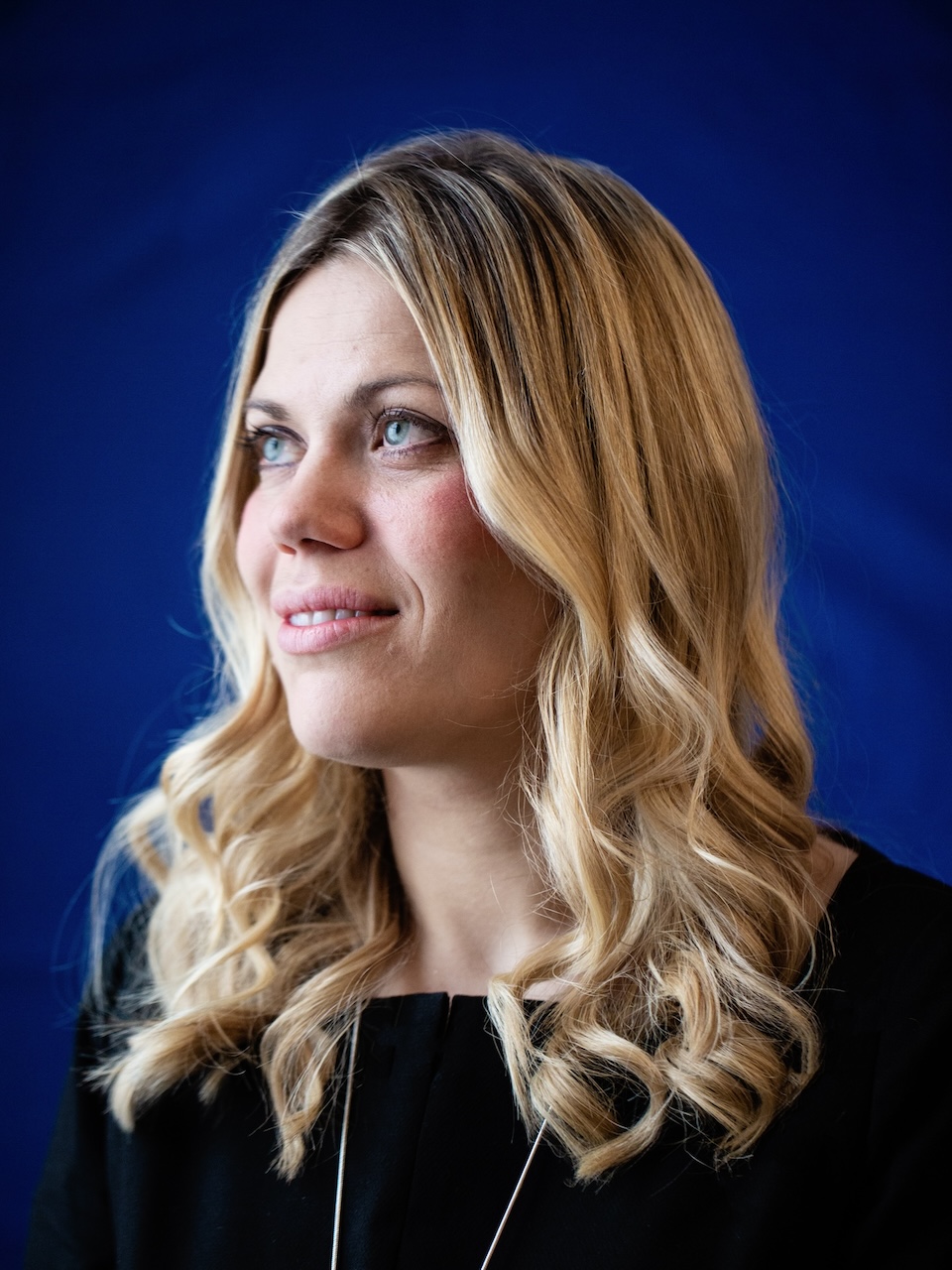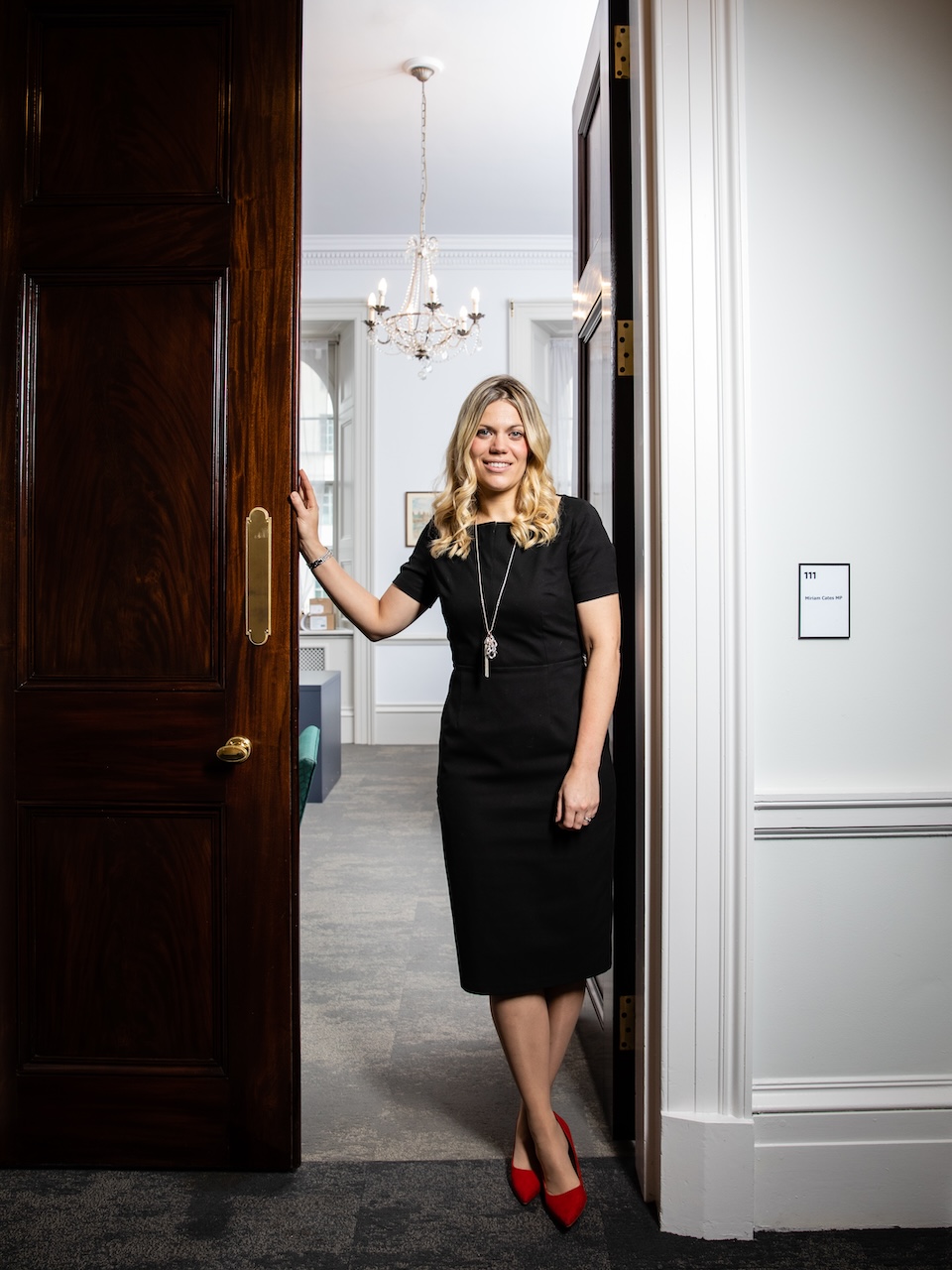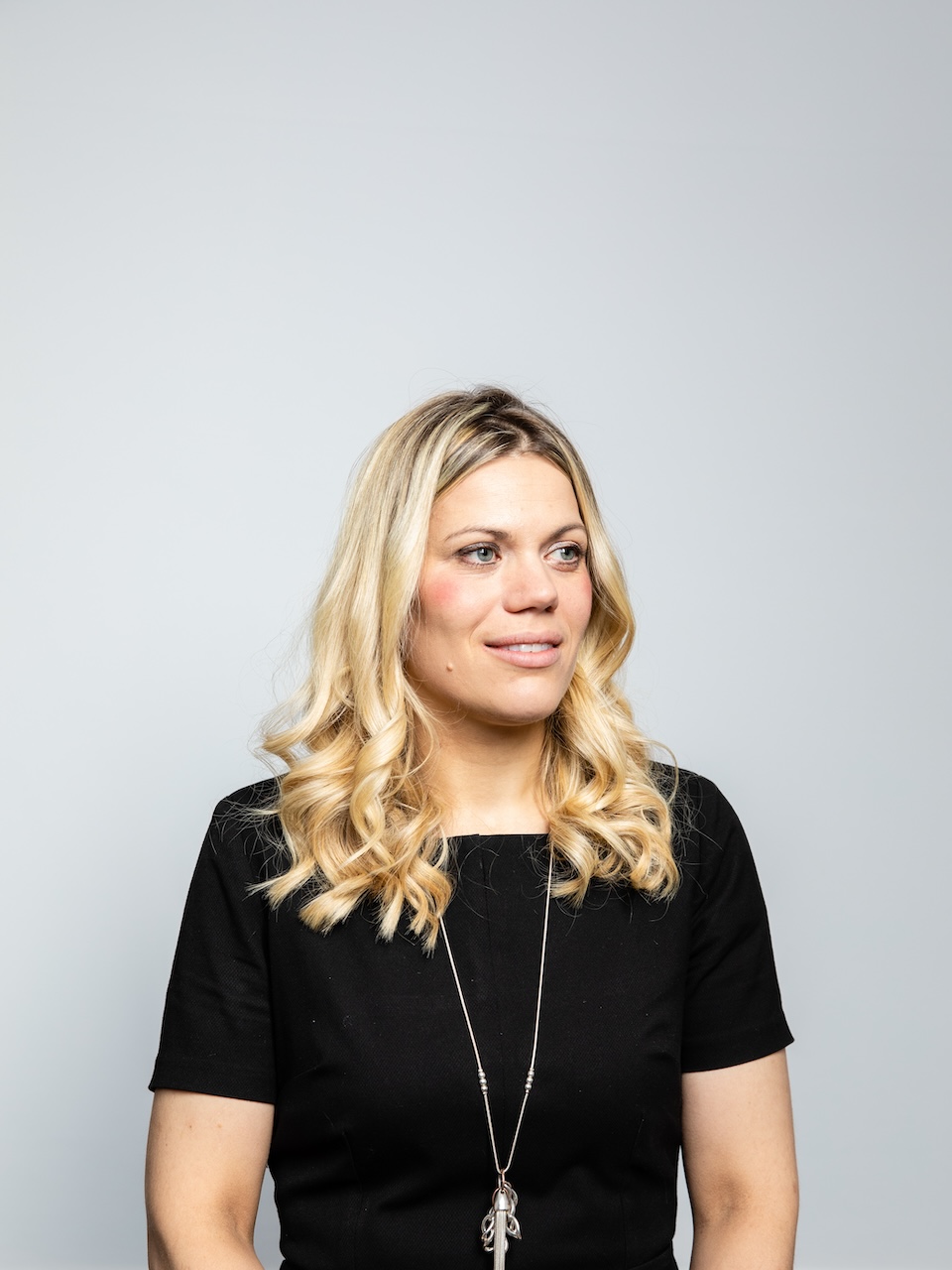Miriam Cates interview: 'Marriage is essentially meaningless if it is easy to get out of'
Miriam Cates MP (Photography by Louise Haywood-Schiefer)
10 min read
Conservative MP Miriam Cates talks to Sienna Rodgers about population collapse, plus why she thinks all surrogacy should be outlawed and no-fault divorce was a ‘mistake’
It is rare to interview a politician so straightforward and candid as Miriam Cates. The 41 year-old MP for Penistone and Stocksbridge offers a direct answer to every question, even – or perhaps especially – in response to difficult ones. Articulate and hardly shy of expressing controversial views, it is easy to see why she is seldom off the airwaves.
We meet for the ‘Children’ edition of The House because much of Cates’ contentious political platform revolves around this theme. Maybe most pertinent is her concern that we’re not having enough children. The Conservative MP believes the United Kingdom’s declining birth rate – averaging 1.6 births per woman in England and Wales, well below the replacement level of 2.1 – will lead to population collapse.
“It’s desperately sad, but you don’t have a right to become a parent. But we do have a duty to protect children”
“If you think taxes are high now, if you think the NHS is underfunded now, if you think we can’t find enough social care workers now, you’ve seen nothing compared to what’s coming down the line because of this declining birth rate,” she says.
Aren’t women in the UK simply exercising their freedom not to have children? Perhaps motherhood is not that appealing; from the potentially difficult pregnancy and childbirth to the loss of income and huge childcare bills, they might be deciding it’s simply not for them.
“We know from the polling that roughly eight per cent of young women say they don’t want to be mothers, and of course that’s absolutely fine,” says Cates. “But around 30 per cent of this generation of young women will probably not become mothers, we can see from the demographic trends. That’s an awful lot of young women who are not going to get what they want.” She adds: “One of the most basic biological instincts is to want to reproduce.”
Europe’s populist right has put reversing the decline of birth rates at the top of its agenda, with prime minister Viktor Orbán spending five per cent of Hungary’s national GDP on pro-natalist policies. What is her response to those who say she sounds like the far right? “I’m not sure why it’s far-right to think it’s a good thing to let women have what they want,” she replies.
Could in vitro fertilisation (IVF) or surrogacy be part of the answer? Cates is unequivocal: reproductive technologies “cannot solve the birth rate problem”. She explains: “Quite often I’m asked, ‘Don’t we need to make IVF more available?’ That’s a fair question, but it won’t help the birth rate.
“But actually, on that, I’m not sure making IVF cheaper and more available is going to help because it does encourage people to delay having children if they think that IVF is an option. IVF absolutely should be an option for people, but we have to be real: it’s not very successful, in terms of how likely you are to conceive on each round, sadly, and the older you get the less successful you get.”
“I do think [introducing no-fault divorce] was the wrong decision… marriage is essentially meaningless if it is easy to get out of”
As for surrogacy, Cates is resolutely opposed. “You have to look at it from the baby’s point of view. Of course adults have a strong desire to be parents, both men and women. Of course it’s a sadness if that’s unfulfilled for whatever reason – they can’t conceive, don’t have a partner, whatever it is. But to deliberately bring a child into the world in order to separate it from its mother at birth I think is just ethically not acceptable.” She points out: “You can’t take a puppy off its mother in this country before it’s weaned. You’re not allowed to.”
Does she believe the UK should outlaw all kinds of surrogacy, including the altruistic kind that is currently permitted? “Yes, I do,” Cates replies, though she adds: “Given the [low] numbers that are conceived here, I don’t think it will ever be a huge issue for Parliament to tighten the law, but I hope we can resist decriminalising.”
Some say anti-surrogacy is disguised homophobia. “Gay people can adopt, absolutely. That’s been the case for quite a long time, and I think adopting a child who for whatever reason is not able to stay with its biological family is an incredibly altruistic, kind thing to do,” she replies. “It’s sad, it’s desperately sad, but you don’t have a right to become a parent. But we do have a duty to protect children.”
 Miriam Cates MP (Photography by Louise Haywood-Schiefer)
Miriam Cates MP (Photography by Louise Haywood-Schiefer)
Cates has criticised no-fault divorce, introduced in 2022 and designed to make the breakdown of a marriage less agonising. Why does she believe it was brought in by a Conservative government? “Your guess is as good as mine! I don’t understand it at all,” Cates says. “I do think it was the wrong decision. Of course some marriages do inevitably fall apart. Nobody wants fighting and acrimony and all that stuff, of course not. It’s bad for the couple, it’s bad for any children involved. But marriage is essentially meaningless if it is easy to get out of. I think that was a mistake.”
Political leaders, she argues, are anti-marriage in their words but not their actions. “Marriage rates amongst the top 20 per cent of earners have not decreased much, but marriage rates amongst the bottom 20 per cent of earners have collapsed. In other words, those in Westminster do not practice what they preach.”
Cates is an admirer of Louise Perry, author of The Case Against the Sexual Revolution, which challenges the idea that sexual liberation benefits women. Does the MP agree that in many ways the sexual revolution was a mistake? “If there are no consequences, particularly for men, to leave a partner and a child, the end result of that is you get far more women bringing up children on their own. That’s not good for men, it’s not good for women, it’s certainly not good for children. We have to be real that there are negative consequences to the sexual revolution as well as positive ones.”
It is difficult for politicians to talk about the family in such a political and conservative way – something that Cates is acutely aware of but doesn’t let dissuade her. “This is something Westminster is too shy to talk about,” she says.
“Obviously a Reform candidate standing against me would be a threat in terms of taking votes”
“Family is so sensitive for everybody because it’s the most valuable thing to most people, and when relationships go wrong it’s extremely raw. Nobody wants politicians standing up there and saying, ‘you should do this, you should do that’. And we absolutely mustn’t. At the same time, we can’t ignore the big picture and the big trends, and what that means for children and families and women. We have to find a way sensitively to address those without seeming preachy or judgy or insensitive.”
Most sensitive of all is gender identity. At the end of last year, the government produced new draft guidance for schools on gender-questioning children. It advises teachers not to initiate the social transitioning of pupils (i.e. changing names, pronouns and facilities used, as opposed to medical transitioning via hormones or surgery) and not to automatically agree to using different pronouns when a child requests it. Critics on Cates’ side of the debate believe the guidance did not go far enough. Does she think schools should be mandated to act according to biological sex only?
“Yes, I do, and I pushed quite hard for that. You don’t really need any guidance if you just say you must treat a child according to their biological sex. That’s it, in one line. The guidance is definitely an improvement on where we are, in theory, although putting in black and white that there can be exceptions – I’m not sure how that will play out.
 Miriam Cates MP (Photography by Louise Haywood-Schiefer)
Miriam Cates MP (Photography by Louise Haywood-Schiefer)
“The problem is that a lot of our institutions, including sadly schools, have gone down the route of this interpretation of the Equality Act, the Stonewall interpretation if you like, that the Equality Act somehow means you can’t refuse to change a child’s pronouns, allow them to use the wrong toilets, allow them to play sports with the opposite sex – it isn’t true at all.”
Cates describes the process of reaching this draft guidance as “two years of pain for not a lot of gain” but adds: “It’d be much more difficult for a Labour government to reverse that and say, ‘No, go back to giving children whatever pronouns they want’. In a sense, we are doing a potential Labour government a favour by having these battles, because I think it would be a lot harder for the Labour Party to do this, given how split they are on this issue.”
I am interested in the extent to which her views on these topics are informed by her Christian faith. “My faith is really important to me, and I wouldn’t do anything politically that didn’t align with that, but I’m interested in it much more from the kind of economic and societal point of view,” she says.
“I absolutely don’t think politicians should be going around telling people what to do based on their religious convictions at all. But we’ve got to be honest, everybody has a worldview… I think sometimes Christians are almost discriminated against, really, because people think ‘you’re not neutral, you’ve got a point of view’. But the truth is everybody has a point of view. At least with Christianity or Islam or Judaism, it is a coherent, well-established worldview, people know what we believe and why.”
 Miriam Cates MP (Photography by Louise Haywood-Schiefer)
Miriam Cates MP (Photography by Louise Haywood-Schiefer)
Does Miriam Cates represent the future of the Conservative Party? Certainly, she has a clear answer of what it means to be Conservative. This may well be useful after the kind of election defeat being predicted for Rishi Sunak this year, which usually prompts soul-searching and a leadership race. But while Cates may have a roadmap to offer her party, her ability to play a role in determining its future may be hampered by her marginal seat, which was Labour-held until 2019.
Is she worried about Reform UK, formerly the Brexit Party, standing against her? “I don’t think they’re looking to do deals and they clearly are very much hoping that the Conservative Party implodes – that is what they want. Obviously a Reform candidate standing against me would be a threat in terms of taking votes,” she says frankly.
“Sadly, under this government, in the last three years we’ve had the highest immigration we’ve ever had. You can absolutely understand people’s frustration and why Reform might want to capitalise on that. But I hope that they don’t because I think a two-party system is a stable one, even if it’s not perfect. But really, unless the Conservative Party moves back to its 2019 mandate, we deserve for Reform to make the most of it.”
Cates says the Conservatives should promise in their next manifesto to leave the European Convention on Human Rights. She also reckons “the world was a safer place” when Donald Trump was US president: “I don’t think he was a dreadful president last time. In fact, some of the calls he made on China and Iran, for example, were absolutely the right calls,” the MP says. She is concerned by his possible re-election, however, as “some of the language he uses and the arguments he engages with now could be pretty destructive”.
The only question to which Cates had no answer: if she loses her seat, what will she do next? “I honestly have no idea. I mean, I really have no idea.” For now, at least, Cates looks certain to continue making waves from the green benches.
